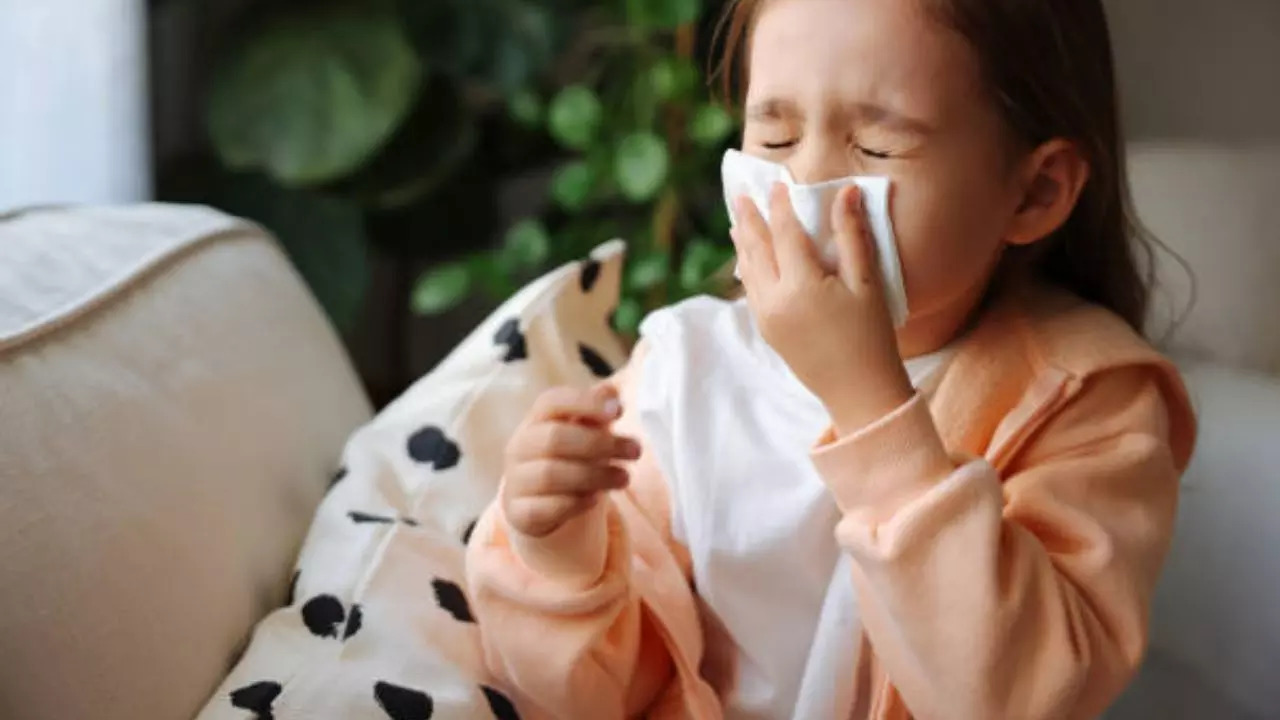The scientists also found that children were also at higher risk if they had been prescribed the drugs up to 15 days earlier.
A worrying study has revealed that some over-the-counter cold and flu medications could significantly increase the risk of seizures in young children. According to scientists in South Korea, data analysed on children who had visited an emergency department with a seizure found that those on prescription drugs, called “first-generation antihistamines”, were 22 per cent more likely to have the medical episode.
Doctors say a seizure is an abnormal electrical activity in the brain that causes changes in consciousness and muscle control. It also causes symptoms that affect behavior and the senses.
The findings also highlighted the need for caution when prescribing antihistamines to children under two years of age. “Despite their reduced therapeutic use due to their low selectivity and interactions with other receptors, these drugs are still widely used to treat rhinorrhea (runny nose) in the common cold or to control itching sensation in children,” wrote researchers from CHA University College of Medicine in South Korea.
“Since first-generation antihistamines can cross the blood-brain barrier, their effects may extend beyond drowsiness and sleep and markedly influence brain wave activity. Therefore, caution is advised when prescribing these antihistamines to children under two years of age, an age group for which data on drug safety are lacking, and first-generation antihistamines are generally not recommended,” they added.
What are first and second generation antihistamines?
According to experts, cold and flu medications taken at night often contain first-generation antihistamines, first developed in the 1940s and 1950s, which cause drowsiness because they easily pass from the blood into the brain. Second-generation antihistamines, on the other hand, do not cause drowsiness.
Antihistamines are used to relieve allergy symptoms, and some may even help relieve a runny nose and sneezing. Doctors say these medications reduce the production of histamine, a substance that causes a runny nose, watery eyes, and sneezing when you have the flu.
The study
According to the study, researchers identified 11,729 children, all born between 2002 and 2005, who had experienced seizures. Of these, more than 3,000 had taken antihistamines in the period before a seizure, suggesting that the drugs increased the risk. One-third (more than 30 percent) of the observed seizures occurred in children between six months and two years of age, and less than half (45 percent) occurred in children between two and six years of age.
The scientists also found that children were at higher risk if they had been prescribed the drugs up to 15 days earlier.
“The benefits and risks of antihistamine use should always be carefully considered, especially when prescribing H1 antihistamines to vulnerable infants,” the researchers wrote. “Further research is needed to elucidate the associations between antihistamine prescriptions and seizure risk,” they added.
Disclaimer:
The information contained in this post is for general information purposes only. We make no representations or warranties of any kind, express or implied, about the completeness, accuracy, reliability, suitability or availability with respect to the website or the information, products, services, or related graphics contained on the post for any purpose.
We respect the intellectual property rights of content creators. If you are the owner of any material featured on our website and have concerns about its use, please contact us. We are committed to addressing any copyright issues promptly and will remove any material within 2 days of receiving a request from the rightful owner.

